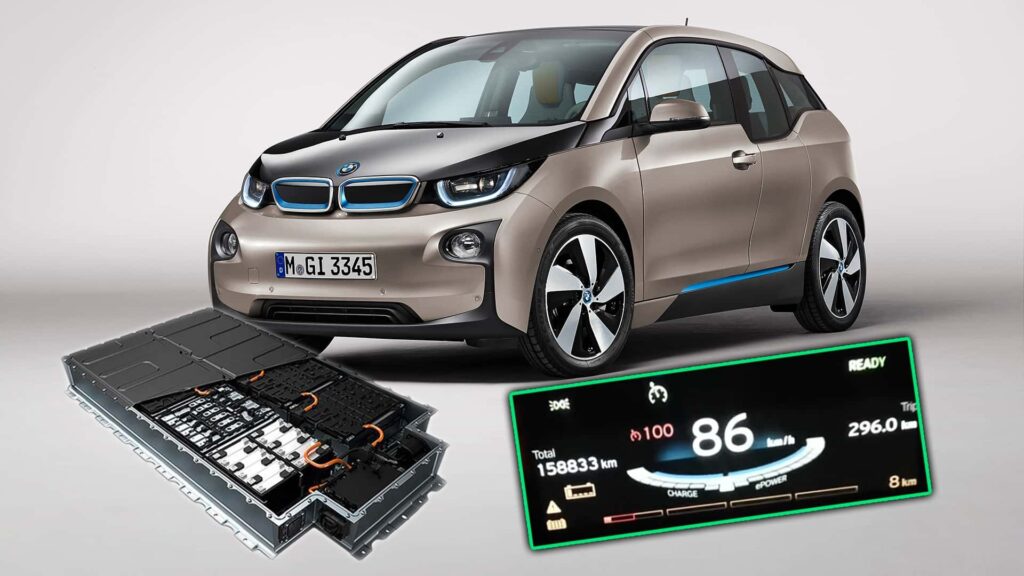The BMW i3, a popular electric car released in 2013, has faced challenges with its battery life over the years. The original model came with an 18.2-kilowatt-hour battery pack, which limited its driving range to just 81 miles. Subsequent upgrades to 94 Ah and 120 Ah batteries improved the range to 114 miles and 153 miles, respectively. However, older i3 models with the 60 Ah pack now struggle to achieve even 70 miles on a full charge due to battery degradation.
To address this issue, a Chinese company called Martigi Manufacturing (MTG) has developed a solution for BMW i3 owners. They have created a battery pack that can double the driving range of the 60 Ah version, making it compatible with all i3 models. This upgraded pack features higher-density Nickel Cobalt Manganese (NCM) cells from China’s CATL, providing a total capacity of 154 Ah or 54 kWh. This represents a significant increase in capacity compared to the original 60 Ah pack and even surpasses the largest factory-fitted pack.
MTG’s battery upgrade includes 96 cells arranged in eight modules, offering a 156% increase in capacity over the smallest pack and a 28% increase over the largest original pack. The company also provides a reflashed battery management system, new electrical connectors, and all necessary hardware for the battery replacement process. While MTG recommends professional installation, they claim that the upgraded pack can deliver a driving range of 248 miles on a full charge.
In a video demonstration by MTG, an i3 equipped with the upgraded pack traveled 186 miles on the highway at 62 miles per hour. The pack can be charged at up to 50 kW from a DC fast charger, similar to the original battery. Pricing for the 154 Ah pack on Alibaba starts at $5,800, with a three-year warranty and a rating of 2,000 charge and discharge cycles. This presents a more affordable option compared to the original BMW-sourced pack, which costs around $15,000 without labor.
Overall, MTG’s battery upgrade offers a promising solution for BMW i3 owners looking to extend the life and range of their electric vehicles. With improved energy capacity and performance, this upgrade could provide a cost-effective and sustainable alternative for older i3 models struggling with battery degradation. Even if the shipping costs for the Chinese pack are the same as the pack itself, the final check should still be lower than the original. This may seem counterintuitive at first, but there are several factors at play that make this possible.
One of the main reasons why the final cost may still be lower even with high shipping costs is the lower production costs in China. Chinese manufacturers are known for their efficiency and cost-effectiveness, which allows them to produce goods at a much lower cost compared to manufacturers in other countries. This means that even with the added shipping expenses, the overall cost of the product is still lower than if it were produced elsewhere.
Additionally, Chinese manufacturers often have access to cheaper raw materials and labor, further reducing the production costs. This cost savings is then passed on to the consumer, making the final price of the product more affordable.
Another factor to consider is economies of scale. Chinese manufacturers often produce goods in large quantities, which allows them to spread out the fixed costs of production over a larger number of units. This helps to drive down the cost per unit, making the final product cheaper for the consumer.
Furthermore, the competitive nature of the global market also plays a role in keeping prices low. With so many manufacturers vying for business, prices are kept in check as companies try to attract customers with the best possible deals. This competition helps to drive down prices and ensure that consumers are getting the best value for their money.
In conclusion, even if the shipping costs for a Chinese pack are the same as the pack itself, the final check should still be lower than the original due to lower production costs, economies of scale, and competition in the market. This makes products from China a cost-effective option for consumers looking to save money without sacrificing quality.

